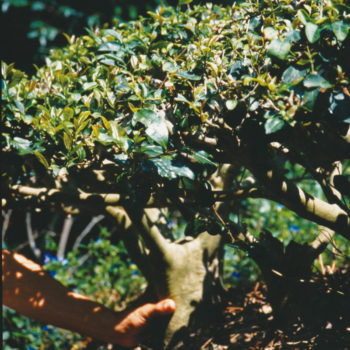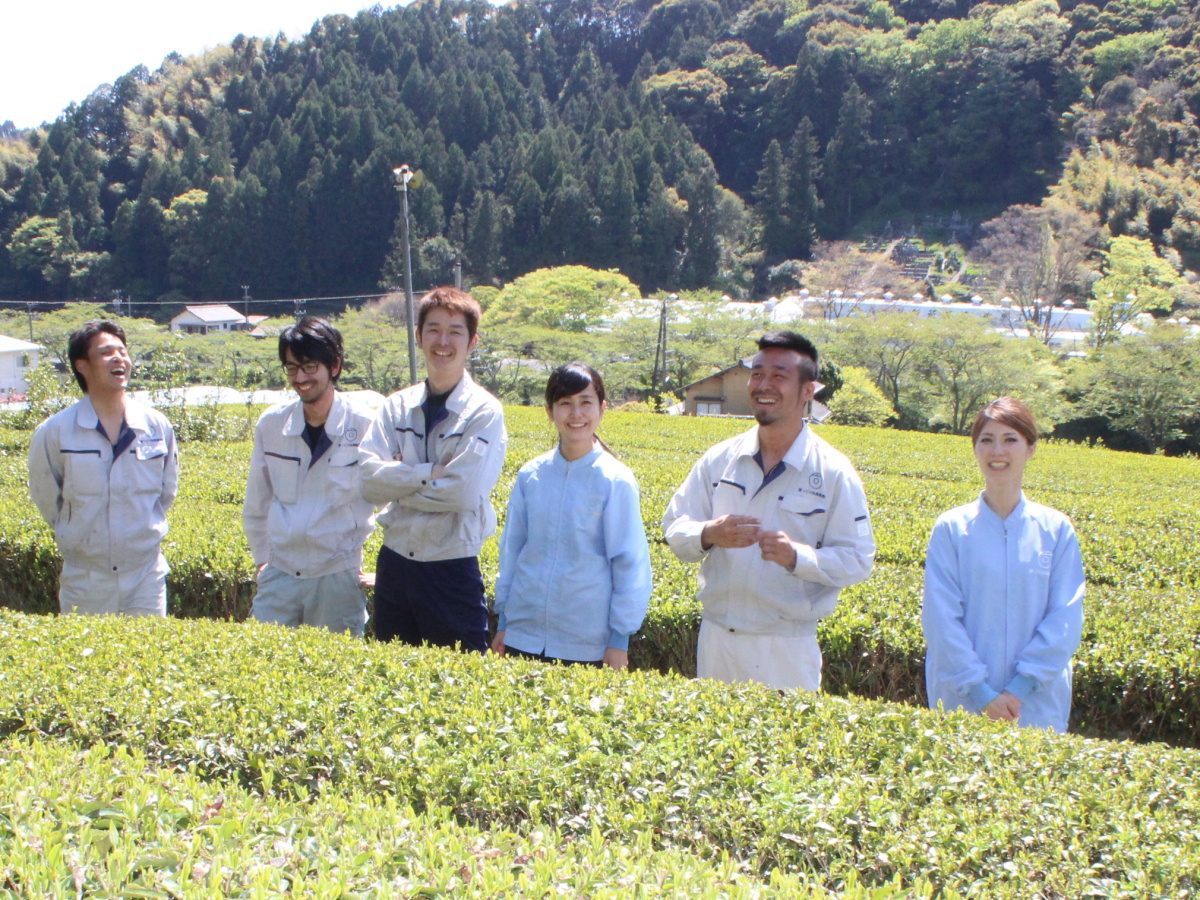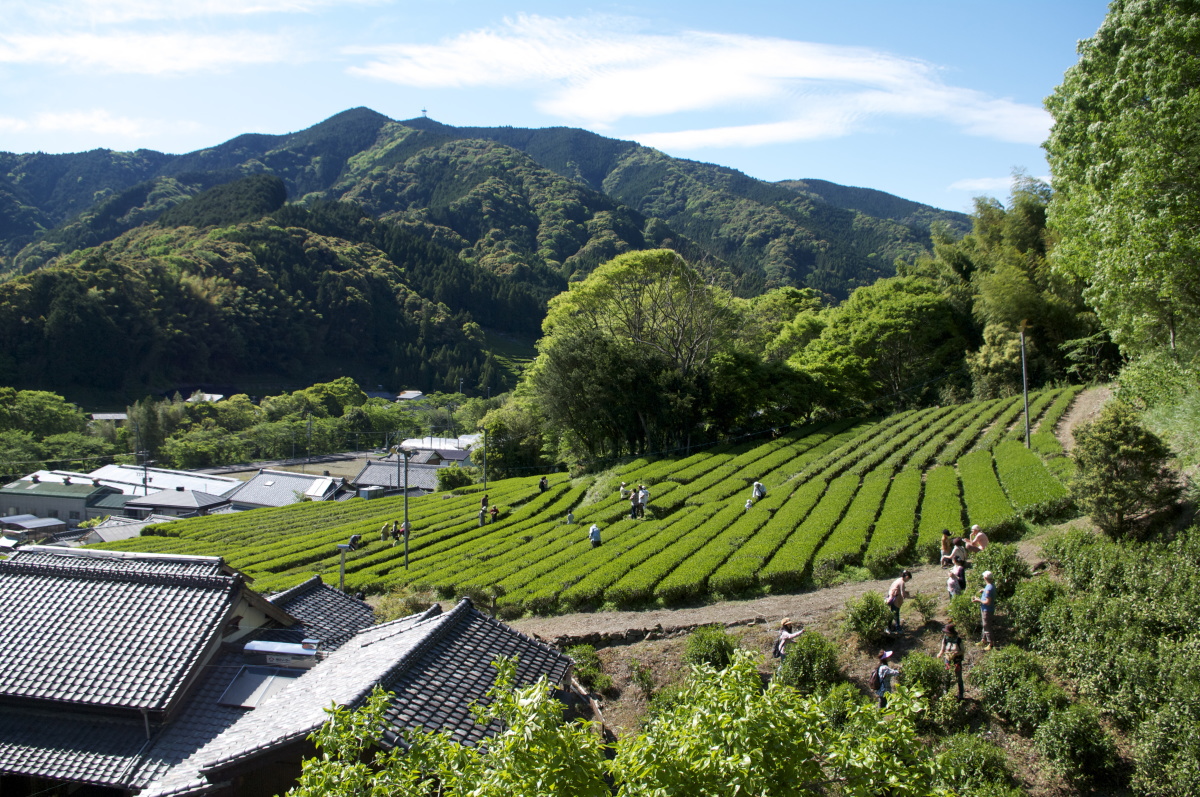We have been working on fully organic farming with pesticide-free and chemical-free fertilizers since 1982 when the pre-owner, Mukojima Yorimitsu took over the farm. Since then, we have tried various farming methods for over 20 years. After many trials and errors, finally it has reached the present method, which is called “Stand alone” that does not stress tea plants out.
In the early days, the vitality of tea plants themselves was weak due to the effects of pesticides and chemical fertilizers used before, and it was almost impossible to harvest. It was six years after we started organic farming that we could get the same amount of harvest as before. I still remember the joy of that time.
At present, we use a special organic fertilizer, and we use fresh water from the back mountain. In addition, we use food safe oil even for the blade of tea plucking machines for harvesting.
 Just as humans feel stressed in a cramped environment, I think we can say the same thing to tea plants. We have made efforts to stop the conventional dense planting and allow tea plants to grow in an open environment. Trees grown in such a way have firm roots, thick trunks, self-protection against diseases and harmful insects, self-healing ability, and above all, strong vitality. I think that you can be convinced if you look at our tea farm.
Just as humans feel stressed in a cramped environment, I think we can say the same thing to tea plants. We have made efforts to stop the conventional dense planting and allow tea plants to grow in an open environment. Trees grown in such a way have firm roots, thick trunks, self-protection against diseases and harmful insects, self-healing ability, and above all, strong vitality. I think that you can be convinced if you look at our tea farm.
The densely planted tree trunk is only about the thickness of the thumb, while the trees planted in open environment are growing thicker than the wrists, as shown in the picture. tea plants can not move by themselves because the environment is bad. We believe it is important to set up an environment where tea plants can grow freely.
Nowadays, most green tea are produced by machine. Having said that, the determination of all processes is left to the human five senses. It is especially difficult to process completely organically grown tea, as it has a thick mesophyll and a strong fiber. Conditions such as temperature, humidity, and conditions of tea leaves vary greatly depending on the day.
In the manufacturing process, a difference of just 1 or 2 seconds in timing, and a difference of 1 or 2 degrees in temperature affect the delicate taste of tea. It is a moment that requires the sense and skills of people involved in manufacturing that can not be covered by machines alone.


